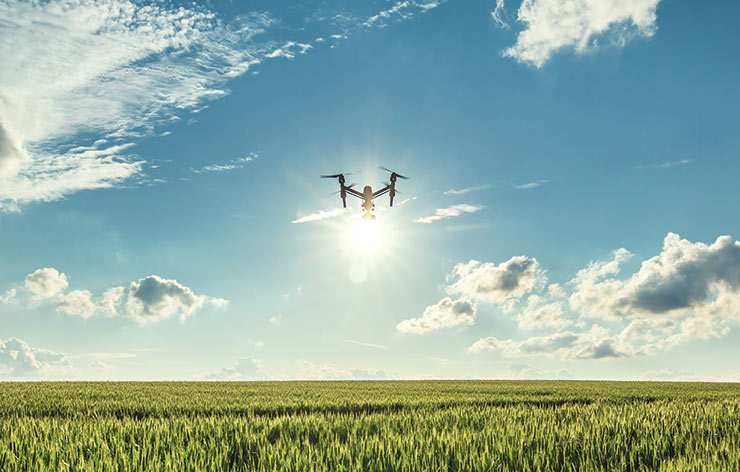The Landing: New sUAS Rules
Room for Improvement

Hear that in the distance? That faint sound?
That’s the noise of drone motors spinning up throughout the United States as the FAA finalized regulations contained in FAR Part 107 that govern commercial operations of small (up to 55 pounds in weight) unmanned aircraft systems (sUAS). ALPA has been actively engaged to ensure that safety is the top priority when it comes to integrating UAS into the national airspace system, working with the FAA and industry stakeholders to ensure that the overall safety of the national airspace is not compromised. While it's good news that a regulatory framework is now in place to help ensure safety, ALPA has been vocal about the regulations’ two significant shortcomings.
Pilot Qualifications:
The new rule requires no actual flight experience or need to demonstrate the skills necessary to safely operate an aircraft. This means that pilots flying commercial sUAS operations may be flying in airspace managed by ATC without adequate knowledge or skills. Additionally, in the U.S., a pilot needs to be 18 years of age or older to hold a commercial pilot’s certificate. However, a commercial UAS “remote pilot” may be as young as 16 years old and is required to complete only a written exam.ALPA's Solution:
ALPA’s comments to Part 107 clearly stated that those who are interested in commercially piloting sUAS must hold the same certificate as commercial-certificated pilots of manned aircraft. This will ensure a standard level of aeronautical knowledge and training across all pilots operating commercially.Recreational Use:
As recreational users make up the bulk of UAS operations, they are virtually unregulated due to legislative limitations placed on the FAA and have very little at stake compared to commercial sUAS pilots. Recreational pilots may not be adequately motivated to operate safely, and their lack of training or experience could potentially compromise the safety of all airspace users—even their fellow sUAS pilots who operate commercially.ALPA's Solution:
The Association urges Congress to correct a loophole to ensure that the FAA has the authority to fully regulate hobbyists and recreational operators of UAS. ALPA will continue to work with the FAA and industry stakeholders to advance the safe integration of sUAS for both commercial and recreational operators.

